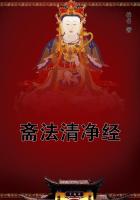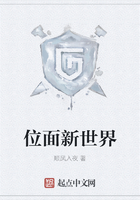"Then it will shut on two instead of one," he answered doggedly.
By this he was through the door, and there was no shadow of turning on his dark, determined face. I knew my man, and wasted no more words. Long ago it had grown to seem the thing most in nature that the hour of danger should find us side by side.
When the door of the firelit room was shut, the gaol was in darkness that might be felt. It was very still: the few other inmates were fast asleep; the gaoler was somewhere out of sight, dreaming with open eyes. We groped our way through the passage to the stairs, noiselessly descended them, and found the outer door unchained, unbarred, and slightly ajar.
When I had laid the gold beneath the pillory, we struck swiftly across the square, being in fear lest the watch should come upon us, and took the first lane that led toward the palisade. Beneath the burning stars the town lay stark in sleep. So bright in the wintry air were those far-away lights that the darkness below them was not great. We could see the low houses, the shadowy pines, the naked oaks, the sandy lane glimmering away to the river, star-strewn to match the heavens. The air was cold, but exceedingly clear and still. Now and then a dog barked, or wolves howled in the forest across the river. We kept in the shadow of the houses and the trees, and went with the swiftness, silence, and caution of Indians.
The last house we must pass before reaching the palisade was one that Rolfe owned, and in which he lodged when business brought him to Jamestown. It and some low outbuildings beyond it were as dark as the cedars in which they were set, and as silent as the grave. Rolfe and his Indian brother were sleeping there now, while I stood without. Or did they sleep? Were they there at all? Might it not have been Rolfe who had bribed the gaoler and procured the pass from West? Might I not find him at that strange trysting place? Might not all be well, after all? I was sorely tempted to rouse that silent house and demand if its master were within. I did it not. Servants were there, and noise would be made, and time that might be more precious than life-blood was flying fast. I went on, and Diccon with me.
There was a cabin built almost against the palisade, and here one man was supposed to watch, whilst another slept. To-night we found both asleep. I shook the younger to his feet, and heartily cursed him for his negligence. He listened stupidly, and read as stupidly, by the light of his lantern, the pass which I thrust beneath his nose. Staggering to his feet, and drunk with his unlawful slumber, he fumbled at the fastenings of the gate for full three minutes before the ponderous wood finally swung open and showed the road beyond. "It's all right," he muttered thickly. "The commander's pass. Good-night, the three of ye!"
"Are you drunk or drugged?" I demanded. "There are only two. It's not sleep that is the matter with you. What is it?"
He made no answer, but stood holding the gate open and blinking at us with dull, unseeing eyes. Something ailed him besides sleep; he may have been drugged, for aught I know. When we had gone some yards from the gate, we heard him say again, in precisely the same tone, "Good-night, the three of ye!" Then the gate creaked to, and we heard the bars drawn across it.
Without the palisade was a space of waste land, marsh and thicket, tapering to the narrow strip of sand and scrub joining the peninsula to the forest, and here and there upon this waste ground rose a mean house, dwelt in by the poorer sort. All were dark. We left them behind, and found ourselves upon the neck, with the desolate murmur of the river on either hand, and before us the deep blackness of the forest. Suddenly Diccon stopped in his tracks and turned his head. "I did hear something then," he muttered. "Look, sir!"
The stars faintly lit the road that had been trodden hard and bare by the feet of all who came and went. Down this road something was coming toward us, something low and dark, that moved not fast, and not slow, but with a measured and relentless pace. "A panther!" said Diccon.
We watched the creature with more of curiosity than alarm. Unless brought to bay, or hungry, or wantonly irritated, these great cats were cowardly enough. It would hardly attack the two of us.
Nearer and nearer it came, showing no signs of anger and none of fear, and paying no attention to the withered branch with which Diccon tried to scare it off. When it was so close that we could see the white of its breast it stopped, looking at us with large unfaltering eyes, and slightly moving its tail to and fro.
"A tame panther!" ejaculated Diccon. "It must be the one Nantauquas tamed, sir. He would have kept it somewhere near Master Rolfe's house."
"And it heard us, and followed us through the gate," I said. "It was the third the warder talked of."
We walked on, and the beast, addressing itself to motion, followed at our heels. Now and then we looked back at it, but we feared it not.
As for me, I had begun to think that a panther might be the least formidable thing I should meet that night. By this I had scarcely any hope - or fear - that I should find her at our journey's end. The lonesome path that led only to the night-time forest, the deep and dark river with its mournful voice, the hard, bright, pitiless stars, the cold, the loneliness, the distance, - how should she be there?
And if not she, who then?















